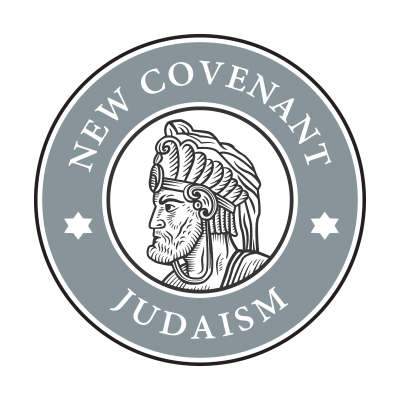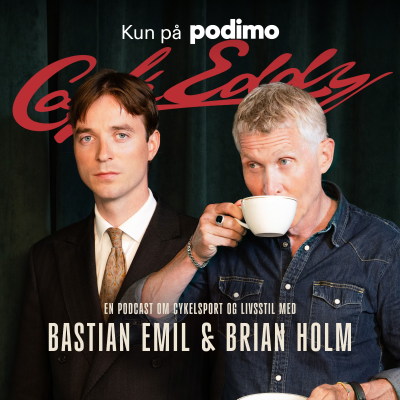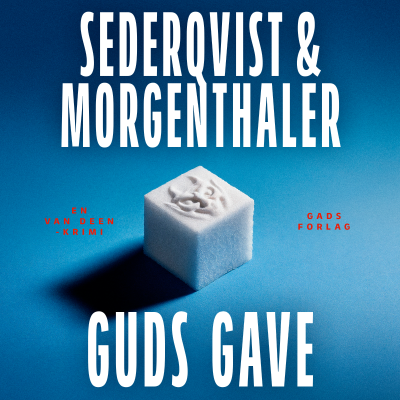
Christ Covenant Church
engelsk
Historie & religion
Begrænset tilbud
2 måneder kun 19 kr.
Derefter 99 kr. / månedOpsig når som helst.
- 20 lydbogstimer pr. måned
- Podcasts kun på Podimo
- Gratis podcasts
Læs mere Christ Covenant Church
This publication contains the weekly teaching from Christ Covenant Church in Lakewood, Colorado. For more information about Christ Covenant Church please visit our website (https://www.christcovenantcolorado.com).
Alle episoder
496 episoderAntifragile - Part 1
Humanity has long viewed being resilient (to remain the same through adversity) as the virtue most vital to a person or thing’s success. Serious consideration of the evidence however tells a very different story. Resilience – though effective in the short term, fails in its ability to achieve success over the long haul. This due to the fact that God’s design was never resilience, but antifragility. If we are therefore to be successful in getting to the Reboot, we must become antifragile. Antifragile (def.) = To improve or get stronger through adversity. 1. The human body is a good example of God’s antifragile design. 1.1. God did not design our bodies to remain the same through adversity but rather improve and get stronger. 1.2. Examples: 1.2.1. Weightlifting: the adversity suffered by the muscles through weightlifting causes them to grow and get stronger. 1.2.2. Running: the adversity suffered by the cardiovascular system through running causes an improvement to our heart and lung’s ability to pump oxygen through the body. 1.2.3. Fasting: the adversity experienced by not eating for long periods of time causes an improvement in cell repair, insulin sensitivity, blood pressure and weight loss. 1.2.4. Adaptive (or Acquired) Immunity: the adversity of sickness causes our immune system to get stronger. 1.2.5. Learning: the adversity of study and memorization causes the brain to form new neural pathways and strengthen old ones. 2. Though God has designed our spirits to also become antifragile, it won’t happen without effort from us. 2.1. Unlike our physical bodies, our spirits are not designed to automatically get stronger when subjected to adversity. For that to happen, requires participation or effort from us (1Pe 5:8-10) = Notice our effort is necessary to the adversity we face - resulting in antifragility – or God making our spirits stronger. 2.2. That God’s goal/expectation in adversity is to produce antifragility and not simply resilience is confirmed by several texts: 1) (Jam 1:2-4) = Trials (adversity) is meant to make us stronger/better (antifragile). 2) (Act 7:22-36) = God subjects Moses to a “Newtonian” form of adversity to make him strong/competent enough to be Israel’s ruler and deliverer. 3) (Rev 2:7, 11, 17, 26, 3:5-6, 12-13, 21-22) “To him who overcomes” = IOW: To him who does what is necessary to become antifragile - i.e., to become stronger through adversity (“overcomes” [Grk., nikao] – same word translated in Rev 6:2 as “conquering and to in order to [kai hina = Denotes purpose/result] conquer” = Becoming stronger through battle/adversity in order to defeat the adversary). 4) (Heb 12:4-14) = The pursuit of holiness (v14 “sanctification” = v10 “holiness”) necessary to getting to heaven (v14 “see[ing] the Lord”) requires shoring up our deficiencies (v4) – which is the purpose of God’s “discipline” (i.e., bringing adversity into our life), so that we can improve/get stronger (become antifragile) – a process which also requires effort and the right attitude from us (vv12-13). 2.3. What about Mat 7:24-28? = The context is J-Day not life’s adversities. 2.4. PNTM: 1) Jesus makes such antifragility (getting stronger through adversity) a condition to getting to heaven (i.e., receiving the various heavenly benefits is only promised to those who “overcome”) – which means resilience alone is not enough! 2) Believing that adversity automatically makes us spiritually stronger (antifragile) is a myth (and a popular one!). Such antifragility only happens when we are practicing God’s prescription (i.e. we do what is necessary to become spiritually antifragile). 3. Practice of the “three divine sisters” is God’s prescription for becoming spiritually antifragile. 3.1. (1Co 13:9-13) = The way we become antifragile through the adversity often associated w/our prophetic forecasts[1] – including the uncertainties dictated by its limited abilities (vv9-12) is by practicing God’s threefold formula of (v13) “faith, hope (and) love.” – historically known as the “three divine sisters”[2] 3.2. Other texts where we find the three divine sisters: 1) (1Th 5:8) = Notice the context is also overcoming (becoming antifragile in the face of) future adversity – (i.e., the Lord’s return [vv1-7]). 2) (1Ti 1:3-6) = The focus of a person’s ministry (v4 what you “pay attention to”) will determine whether their recipients are growing weaker (vv3-4 w/6) or stronger (antifragile) through the battles of life. The formula for the latter is (v5) “faith”, hope (what Paul means by “a pure heart and a good conscience” [TBD]) and “love.” (hence the reason this is to be our “goal” in ministry [“the administration of God”], vv4-5). That Paul is indeed prescribing these three as the formula for antifragility is confirmed by: 2.1.) his application to Timothy’s ministry (vv18-19 “Fight the good fight”) = Become antifragile/an overcomer in the adverse environment of ministry (see 2Ti 1:8, 2:3) through practicing the formula (v19a “keeping faith” and hope [“a good conscience”]). 2.2.) his warning of what may happen should he fail to do so (v19b “which some have rejected [rejected the practice of faith, hope and love] and suffered shipwreck”). 3.3. If we are not therefore diligent to practice God’s formula (the three divine sisters), we should not expect to realize its goal (becoming antifragile). Not realizing the goal will make you vulnerable to the danger of apostasy should any portion of our “2030 forecast” be correct (1Co 10:12 “take heed” = Be careful). 3.4. P(then)NTM: WE NEED TO DO A DEEP DIVE INTO THE STUDY OF THE THREE DIVINE SISTERS (faith, hope and love) since you can’t practice what you don’t understand! WHAT YOU CAN EXPECT TO LEARN IN THIS SERIES: 1. How the three divine sisters specifically combat fragility (or contribute to antifragility). 2. How the three divine sisters are connected to another important set of three: light, life and love. 3. How the three divine sisters provide the answers to Life’s biggest questions. 4. How the three divine sisters provide the attributes most valuable to every human being. 5. How the three divine sisters provide the basic framework for understanding the entire Bible. 6. How the three divine sisters provide the basic framework for counseling (or diagnosing personal problems). 7. How Christ is connected to – and at the center of everything (including all the previous points). 8. How truly beautiful, genius and good is God’s person, precepts and plan. 9. How truly disgusting, dumb and depraved are those who choose self and the world over God. [1] Most prophetic forecasts include some form of coming adversity (e.g., the prophecies of Agabus - Act 11:28, 21:11) since this: 1) has always been a part our calling as the people of God in a sinful world (Phi 1:29; 2Ti 3:12), 2) is effective in reducing stress/negative affects (expectation allows for mental preparation) (e.g., 1Th 3:3-4). [2] Referring to faith, hope and love as the “three divine sisters” may have originated with the first century church. At the very least, we find evidence of its existence in the second century (See the fable of St. Sophia).
Through A Mirror Dimly - Part 2
(1 Co 13:9-12) FORECAST OF EVENTS THAT COULD TAKE PLACE IN THE NEXT 220-272 WEEKS (probability scale of 1-10) 1. (9/10) Christ will return to Jerusalem [Mt. of Olives] from the sky above in apocalyptic fashion on an unknown day and time in 2030 with His angels to gather and glorify all of history’s saints. 2. (9/10) Christ’s return will also mean the immediate and fiery destruction of Satan and his global army of God-and-gospel rebels who will make an unsuccessful attempt to exterminate the tiny remnant of Jesus Jews who exist in Jersualem and a small church/churches in the world. 3. (9/10) Christ’s return will likewise mean the fiery destruction of this universe, the final judgment of humans and angels, the wicked being eternally resigned to the lake of fire and the righteous receiving eternal life in the new heavens and earth. 4. (9/10) Christ’s return and its ensuing cosmic catastrophes will surprise the majority of earth’s inhabitants whose present and future outlook on their wicked way of life will be superlatively positive. 5. (6) Another sign that Jesus’ return is imminent will be the perplexing presence of UFO/UAPs arising from our oceans and the paradigm-shifting propaganda of their alien architects. 5.1. perplexing presence of UFOs/UAPs arising from our oceans (Luk 21:25 “signs in the sun, moon and stars”) = The invasion of powerful foreign (or alien) entities (Eze 32:7-12; Isa 13:1 w/9-11 w/17-19). In this case, UFOs/UAPs “roaring” out of our seas w/advanced tech or capabilities that leave us at an intellectual loss/perplexed (“and on the earth dismay among the nations, in perplexity at the roaring of the seas”[1]). In this respect consider also (Eze 1:4-5; Eph 2:2 “prince of the power of the air”[2]). 5.2. paradigm-shifting propaganda of their alien architects (that causes men to faint and the heavens to shake – Luk 21:26 w/27) = Satan and his demons (the alien architects of the UFO/UAPs) are the heroes or saviors of humanity (2Co 11:14) - and the family of Yahweh (the Father, Son and Holy Spirit), its true villains: 1) The family of Yahweh: 1.1.) are oppressive bigots: they created humanity and the angels with free-wills but then prohibit us from using them in the discovery of self-identity, sexual expression and morality, expecting us to instead imitate them and their rigid system of rules and religion under penalty of eternal damnation if we refuse or rebel. 1.2.) are racists: they are the creators of diversion tactics – including false religions, false gods, false alien encounters and messages - all meant to ensure that no one other than the Jews succeed in this world. 1.3.) are also frauds: they possess no rightful claim to us or the universe since their creative power and ability is not inherent to them – which means they can be beat (e.g., like Thanos, they stole the infinity stones). 2) Satan and his demons: 2.1.) were exiled from our material realm for attempting to free us from such tyranny though they have continued to fight behind the scenes ever since. 2.2.) have been working tirelessly for almost 6k years to counter Yahweh’s agenda and get our thinking and technology to a place where we are ready to rush heaven and win our freedom (e.g., thinking: Avengers versus Thanos; Fantastic Four versus Galactus; tech: the invention of computers, the internet, AGI, electrogravitic/anti-gravity propulsion warships [UFOs] able to transcend dimensional boundaries). 2.3.) do not want to enslave but empower us – including provide the healing and resources we need to live happy lives (humanity only does bad things bc God has not provided them w/enough resources). 3) Time is the of the essence, the world must immediately unite if they have any chance of winning the fight that will soon be coming to them if they do not first take it to Yahweh (i.e., conquer the third heaven and home of Yahweh before the destruction of this world. Satan is aware of this universe’s 6k yr shelf-life and the return of Christ). Satan’s story-line is simply an inverted version of Babel. Instead of an assassination in heaven, it will be an ambush on earth (Gen 11:1-9 [consider similarities between Babel and Rev 20:8-9 - esp. Gen 10:32/Rev 20:8 “nations” and Gen 11:3/Rev 20:9 “plain”]). 6. (6) = When Satan formed his coup against God, he not only took a third of the heavenly host (angels) but all the advanced military tech that was in their possession at that time (e.g., interdimensional [manned] warships and drones, telepathy, AI, etc.,) and has been making improvements to it ever since (hence the reason for the multiplicity of new and different UFO/UAPs showing up in our skies Rev 12:4; Eze 1:4-5, 15-21). 7. (6) = The reason the UFO/UAPs are coming out of our oceans is because its deepest parts are the location of the abyss –the exilic home, hiding place and primary base of Satan and his demons after their rebellion against Yahweh. This may also be behind the myth of Atlantis: a city whose residents possess great power and powerful technology banished to their place under the sea by the Gods[3] (Gen 1:2 “darkness was over the surface of the deep [waters]” = The abyss, a watery place of non-order/disorder/deadness, a bottomless hole [pit] in the ocean [Sheol, Hades, Tartarus the bottomless pit – Jon 2:1-6; Rev 20:13] Isa 27:1; Mat 12:43; Luk 8:31-33; Rev 20:1-3 w/8). 8. (6) = Satan and his demons have been secretly working with those people and governments wielding the most influence and power throughout human history (1Jo 5:19; Deu 32:17). 9. (10) = Advanced tech and cures aside, Satan’s sincerity (2Ti 3:13) and worldview/ethic (“will to power”) will be his most powerful weapons in convincing the vast majority of the world to follow him (Ecc 10:4) [4]. 10. (3) = In an effort to increase his odds of winning, Satan will attempt to stall the resurrection by abducting the remnant of Jesus Jews on planet earth and moving them via his interdimensional warships (UFOs) to the second heaven (immaterial space outside of God’s home [third heaven] where dead spirits reside, angels fly and spiritual battles are fought – e.g., Rev 8:13, 14:6; Rev 12:7-9; Dan 10:10-13) before the return of Christ (Rev 20:8 w/1Th 4:13-17 w/1Co 15:50-53 w/2Co 12:2 and Rev 1:10 w/4:1-2 [Eze 3:12, 8:3, 11:1). 11. (3…9) = Our alien abduction will be thwarted by Jesus’ return and our (along with the righteous dead’s) instantaneous transformation into human torches who then ambush and destroy Satan, his demons and the world of wicked humans who followed him (Rev 20:9 w/1Th 4:13-17 w/Psa 104:4 [Mat 22:30] and Heb 12:29 [Rev 1:14-16; 1Jo 3:2]; Psa 149:5-9). CLOSING CONTEMPLATION: 1) If Satan can make improvements to God’s tech, doesn’t that mean God is not omniscient? If He is, what reason might God possess for deliberately not possessing perfect (unable to be improved) tech at the beginning of our Creation (i.e., before Satan’s rebellion)? What biblical example might provide some support? 2) Why will Satan’s sincerity and worldview be so convincing to so many in our world (and some in our church)? 3) How do we keep from being swept away in Satan’s apocalypse? 4) What is Nietzsche advocating for and against, by this statement, “When the center of gravity of life is placed, not in life, but in the ‘other world’—in nothingness—life has in reality been deprived of its center of gravity. The great lie of personal immortality destroys all reason, all naturalness in instinct;—all that is beneficent, that is life-furthering, that pledges for the future in instincts, henceforth excites mistrust.” (Anti-Christ). [1] Examples of trans-medium UFO/UAPs documented by the U.S. Navy: 1) 2004 USS Nimitz (fighter pilot Cmdr. David Fravor and his squadron recorded the now famous “Tic-Tac” event) 2) 2015 USS Theodore Roosevelt, 3) 2019 USS Omaha, 3) 2023-25 USS Jackson. 4) 2014 Navy training flights off the coast of Virginia Beach, VA (daily occurrences for almost a year recorded by fighter pilot Ryan Graves and his squadron). Cmdr. Fravor and Lt. Graves testified before Congress in 2023. [2] Evidence of UFO/UAP sightings go back to ancient times (e.g., the Vedic literature of India written long before the time of Christ [4k BC] contains many descriptions of sky gods in flying machines [“vimanas”] said to be able to fly not only in the sky but outer space and underwater). Is it possible this is the reason the ancients believed the sky to be the realm of demons? [3] Atlantis has caught the attention of ocean researchers who believe there is a connection between its existence and the recent UFO/UAP phenomena (e.g., retired Navy Rear Admiral Timothy Gallaudet has suggested a classified mission to Atlantis will be taking place in 2026). [4] Friedrich Nietzsche, the God-hating philosopher who coined the phrase “will to power” to identify the system of ethics he embraced summarizes it as follows, “What is good? All that increases the feeling of power, will to power, power itself, in man. What is evil? All that proceeds from weakness.” (The Anti-Christ). IOW: the categories of good and evil are not determined by equity/love (do no harm to human flourishing – Rom 13:10) but power (good) and weakness (evil). According to Nietzsche, each person must – in the pursuit of self and selfish desire, exert the power of their will until it “overcomes the resistance” (ibid) being placed on it by the wills of others - or the demands of human flourishing. Humanity progresses through survival of the fittest – not service to the weak. That Nietzsche’s will to power ethic is indeed Satanic has long been acknowledged by Satanists – including Iranian-American philosopher, ufologist, political activist, and Satanist, Jason Jorjani, “Those who wish to join Satana (Satan whom he believes to be female) as her companions…should concern themselves above all with personal empowerment…the ordeal to enter into companionship with her begins by forcing you to become who you are (to will to power)…Only individuals who turn out to have this Satanic ethos can hope to join her on the other side of the merciless harvest that is coming. As Nietzsche said, ‘Hell is where all the interesting people are.’” (Satanaeon). In this light consider Jesus’ words to Satan-possessed Judas in John 13:27, “Do what you will [quickly].” The practice of Satan’s ethic is the confirmation of his presence.
Through A Mirror Dimly - Part 1
(1 Co 13:9-12) (9 w/12) For we know in part and we prophesy in part…for now we see in a mirror dimly” = What God provides to His people with respect to prophecy is not only incomplete (“in part”) but often a poor reflection of its reality making any consistency in accuracy when forecasting the future almost impossible (e.g., Act 21:11 w/31-33). As a result, the church functions like capricious children (v11) in her efforts to discern coming events. She is nonetheless tasked with this mission – errors and edits included, as God’s prescribed method for planning and preparation (hence 1Th 2:13-14 w/3:1-4 w/5:19-21; e.g., accuracy of weather forecasting for navy fleets on long deployment: > 14 days [<50%], 2-4 days [>90%] “The future of conflict will belong to those who can anticipate the storm and utilize it to their advantage.” - JR Cottingham, National Defense Magazine).[1] PNTM: Our ability to plan and prepare for the coming storm surrounding Jesus’ possible return in 2030 requires we not only remind ourselves of Scripture’s prophetic forecast regarding these things but also make updates or changes as we get closer and clearer. FORECAST OF EVENTS THAT COULD TAKE PLACE IN THE NEXT 220-272 WEEKS (on a probability scale of 1-10) 1. (9/10) Christ will return to Jerusalem [Mt. of Olives] from the sky above in apocalyptic fashion on an unknown day and time in 2030 with His angels to gather and glorify all of history’s saints (Mat 24:25-36 [Act 1:11]; Luk 21:25-32; Zec 14:4-9; 1Th 4:13-18; 2Pe 3:8 [Isa 46:10];[2] Act 2:17 w/Gal 4:4-6 “fullness of time” = consummation of the [prior] ages [epochs] w/Heb 9:26 “consummation of the ages” [which began at Christ’s death in 30 AD]). 2. (9/10) Christ’s return will also mean the immediate and fiery destruction of Satan and his global army of God-and-gospel rebels who will make an unsuccessful attempt to exterminate the tiny remnant of Jesus Jews who exist in Jersualem and a small church/churches in the world (Zec 14:1-3 and Rev 20:7-10 [9 “camp of the saints” = Gentile Jesus Jews in a small church/churches in the world; “beloved city” = Hebrew Jesus Jews in Jerusalem] and 2Th 2:7-10 w/Mat 16:18 w/2Pe 3:9 w/Rom 11:25 [no more Gentiles are turning to Christ and becoming Jesus Jews] w/26-28 [Luk 13:35, 15:11-32 = Some Hebrews in Jerusalem turn to Christ and become Jesus Jews at/close to His return] w/1Ki 19:14 w/18:4, 13 [also 19:18]; Consider also: 1) Jesus seems to hint at the idea of only a few/tiny remnant of saved in the end by His question in (Luk 18:8). 2) Jesus and Peter both connect His return to the Flood – an event which saved only eight people (Mat 24:37; 1Pe 3:20 w/2Pe 3:3-9 [mention of God’s patience in both seems to suggest we also view the small number of those delivered from His first extinction event as representative of those delivered in His second]). 3) God’s deliverance of only a tiny remnant is a predominant theme across redemptive history (Gen 6-9 [Noah and his family in re: to the Flood]; Gen 45:7 [Joseph and his bros/Israel in re: to the global famine]; 2Ki 19:30-31 [Judah in re: to the Assyrian invasion]; Isa 10:20-22 [Israel in re: to the Assyrian invasion]; Ezr 9:8-15 [Judah/Israel in re: to the Babylonian invasion]; Jer 23:1-6 [Jesus Jews in re: to Israel’s apostasy]). 3. (9/10) Christ’s return will likewise mean the fiery destruction of this universe, the final judgment of humans and angels, the wicked being eternally resigned to the lake of fire and the righteous receiving eternal life in the new heavens and earth (2Pe 3:1-13; Rev 20:11-22:16; 1Co 6:3; 2Co 5:9-10). 4. (9/10) Christ’s return and its ensuing cosmic catastrophes will surprise the majority of earth’s inhabitants whose present and future outlook on their wicked way of life will be superlatively positive (Luk 17:26-30; 1Th 5:1-5 “darkness” = Wickedness as the way of life will be popular and prospering causing the majority to miss the bad omens in their midst). The bad omens signaling the soon return of Christ (missed by the majority of the world) will include: 1) great apostasy among true churches and the prevalence of false gospels, teachers and churches (Mat 24:10-13; e.g., Christianity and her teachers, the FAG). 2) there is only a small number of Jesus Jews left on planet earth and conversion efforts among Gentles in the world have stalled (again 2Pe 3:9; Rom 11:25; Luk 18:8). 3) the (possible) conversion of Hebrews in Jersualem to Jesus Jews before His return (again Rom 11:26-27). 4) global agreement to persecute and kill Jesus Jews – including betrayal by biological family members (Mat 24:9; Luk 21:16-17; Rev 20:9). 5) the biblical gospel (MCG) of the Jesus Jews will be recovered and proclaimed as a testimony to the whole world/all the nations against their false gospels (e.g., FAG) (Mat 24:14 “testimony” = Witness to the truth/true gospel in the face of opposition – most specifically, religious/gospel opposition, as a means of judgment against them – Luk 21:1-15 [parallel to Mat 24]; Consider also that the word testimony’s predominant use in the OT is in respect to judgment - Exo 16:28-34 [Exo 31:18 w/Deu 10:2, 4-5]; Exo 25:21-22; Num 17:10, 35:30; Rev 15:5-7). 6) the obstacle presented by a pandemic of homoerotic narcissism to God’s gospel mission (today’s examples: world celebration of LGBTQ, gender fluidity/gender bending, masturbation - in most cases, a homoerotic act[3], the celebration of the “Queer Last Supper” at the opening ceremony of 2024 Paris Olympics[4]): Noah’s day (Gen 6:12 “corrupt”) = Some ancient Jewish sources view this as a reference to homoerotic narcissism. Abraham’s day (Gen 18-19 w/Jud 1:7) = Sodom and Gomorrah – two city-states/kingdoms (each had their own king – Gen 13) with great influence over the territory to be inherited by Abraham (See Gen 14). Moses and the Israelites in Egypt (Exo 3:6-14 “I AM WHAT I DO”) = A slight variant on the name of the gender-fluid/gender-bending “He-She” Egyptian father of the gods, Atum who masturbated as the means to creating humanity[5] Consider also (Luk 17:26-30) = Jesus’ reasons for referring to both Noah and Sodom with respect to His return is more than simply to make the point that His return will catch most off guard. More importantly, it indicates why they will be caught off guard: for missing the thing which has historically signaled God’s national – or global judgment to be imminent – homoerotic narcissism (Rom 1:18-27) = Alluding no doubt to the past, Paul confirms widespread homosexual behavior – including homoerotic-masturbation [v24] to be the clear historical sign that humanity has reached the tipping point with respect to narcissistic idolatry and God’s ensuing wrath. 5. (6) Another sign that Jesus’ return is imminent will be the perplexing presence of UFO/UAPs in our cosmos and oceans and the paradigm-shifting propaganda of their alien architects (Luk 21:25-27) = Not a contradiction of the superlatively positive outlook of the wicked communicated in Luk 17:26-30]; (v25) “signs in the sun…” [not a reference to cosmic calamity but the presence of foreign and powerful entities – e.g., Eze 32:7-12] w/ “perplexity [at a loss to understand] at the roaring [report – Luk 4:37] of the seas” [not a reference to the effects of the moon on our tides which we understand]; literature/prophecy from the ANE has little/no concern for scientific matters; more often such things are once more a reference to entities] = The perplexing presence of UFO/UAPs in our cosmos and oceans; (v26) = The paradigm-shifting propaganda of the UFOs alien architects. CLOSING CONTEMPLATION: What is the paradigm-shifting propaganda of the aliens that will cause men to faint and the heavens to be shaken? [1] Two factors are no doubt to “blame” for the inaccuracies that can exist in inspired prophecy: 1) humans possess free-wills, 2) God doesn’t know the future. [2] “Six thousand years the world will exist and for one thousand, [the seventh], it shall be desolate [no longer exist], as it is written, ‘And the Lord alone shall be exalted in that day” (Sanhedrin 97a) “Six eons for going in and coming out, for war and peace. The seventh eon is entirely Shabbat and rest for life everlasting.” - Rabbi Eliezer ben Hyrcanus (2nd century A.D.) “For the day of the Lord is as a thousand years (2Pe 3:8); and in six days created things were completed; it is evident, therefore, that they will come to an end at the sixth thousandth year.” - Irenaeus (130-202 A.D.) “Give heed, children, what this means; ‘He ended in six days’ (Gen 1:2): He means this, that in six thousand years the Lord shall bring all things to an end; for the day with Him signifies a thousand years; and this He himself bears me witness, saying; “Behold, the day of the Lord shall be as a thousand years” (2Pe 3:8). Therefore, children, in six days, that is in six thousand years, everything shall come to an end.” - The epistle of Barnabas (75 A.D.) “And 6,000 years must needs be accomplished, in order that the Sabbath may come, the rest, the holy day on which God rested from all His works. For the Sabbath is the type and emblem of the future kingdom of the saints, when they shall reign with Christ, when He comes from heaven, for ‘a day with the Lord is as a thousand years’ (2Pe 3:8). Since, then, in six days God made all things, it follows that 6,000 years must be fulfilled.” - Hippolytus (170-235 AD) [3] All masturbation that is narcissistic/inequitable (selfish and self-loving) is therefore by definition a homoerotic act. [4] For most of human history masturbation (of the homo-erotic nature -otherwise known as “Onanism”) was viewed by medical practitioners as narcissistic and akin to insanity, “the most striking features in this variety of mental derangement are the intense selfishness and self-conceit that are shown. The patient is completely wrapped up in self, egotistically insensible of the claim of others upon him or his duties to them, hypochondriacally occupied with his sensations and his bodily functions, abandoned to indolent and solitary self-brooding, he displays a vanity and self-sufficiency quite unbecoming his age and position; constantly seeking the indulgence of others…and is apt, if he gets not the consideration which he demands, to declare that his family are unfeeling and do not understand him…[This individual possesses] great self-feeling and vanity…being engrossed in the affectation of self…[seeing everything] from the standpoint of the narrowest selfishness.” – Dr. Henry Maudsley (The Pathology of Mind) [5] “I am, ‘Acts-As-He-Likes’, father of the gods” – Egyptian Coffin Texts (261)
What Jesus Teaches About The Lost
1. Jesus wants the faithful who love God to show it through shepherding the lost who also love God. 1.1. (Mat 9:9-13 w/36) 1.2. (13) “sinners” = Lost people who love God - versus lost people who love self/their sin. Jesus made the former a priority in His ministry (versus the latter who were a waste of time – TBD). “I desire compassion and not sacrifice” (Hos 6:6 “in the knowledge [understanding] of God rather than sacrifice”) = What God wants most from us as the sign of our love and loyalty are not those things or acts which require no exercise in understanding (“sacrifice”) but those that do (“compassion”) – especially in relation to those whose hearts are tender to God (they love Him) but are lost/have lost their way (“sinners”) (see Mat 12:1-7) = The Pharisees’ handling of the disciples was wrong (they “condemned the innocent”) because they did not take the time to understand them. 1.3. This (then) is what is behind the word “shepherd” in verse 36 (notice its connection to “compassion”) = A person who takes the time to understand at a deep level, the life of another, for the purpose of gaining their trust and effectively caring for them. In this case, caring for their spiritual needs (including evangelism – see v35). 1.4. This call to shepherd the lost who love God starts w/those in the covenant community (like those Jesus is speaking to in Mat 9) including our spouses and kids [the given – hence in re: to shepherds over the church – 1Ti 3:4-5]) but extends also to those outside the covenant community (those welcomed to God)(Act 1:8 w/13:48 “appointed for eternal life” = The lost outside the covenant community whose hearts are inclined to love God; 2Pe 3:9 “you…any” = Those who are lost yet love God – or inclined to love God – e.g., Neh 9:8). 1.5. The identity of the lost who love God = People who are distressed and dispirited by their sin because they have a heart inclined toward God – i.e., they love Him and don’t want to hurt Him (Luk 19:1-10 – Notice it is Jesus Who befriends Zaccheus leading to his repentance; similar w/the woman at the well – Joh 4:7-22 w/28-30). 1.6. The identity of the lost who love self/their sin = They are distressed and dispirited by God who makes them feel bad about the fact that they truly love self/their sin (or the world – i.e., darkness – Joh 1:5, 3:19-20). 1.7. Those who truly love God in their hearts will also love and want to follow Christ (Joh 5:39-42, 8:44). 1.8. It is important to note that those who love for God (Christ) will do so be because Who He is and what He represents (life and light [law – Isa 2:1-5], grace and truth [or compassion/mercy, lovingkindness and truth/faithfulness], righteousness, justice and equity [which includes transparency and honesty about who we are – Joh 3:21; Joh 1:1-4, 14 [Exo 34:6]; Joh 14:6; Psa 99:4 w/Isa 11:1-5) ---versus what they get from God in terms of material blessings etc., (e.g., Luk 8:13-15 “an honest and good heart” = They love God b/c of Who He is not what He gives them – hence why the rocky and thorny soil eventually fall away – the things they wanted from God they can get a lot quicker from the world world; See similar in Heb 6:4-6 = They loved God for what He gave them [“tasted the heavenly gift…partakers of the HS…tasted the good word of God and the powers of the age to come”] versus Who He is). 1.8. PNTM w/respect to the identity of the lost who love self/their sin = They may believe they love God but their reasons for doing so are narcissistic. They operate as though God is their investment versus what is actually true: we are God’s investment (and He expects a good return!). As a result, they care very little about righteousness/doing the right thing unless it gets them something. God is just a means to further their love of self (i.e., God is their sponsor) (Joh 6:1-15 w/25-26 w/66-68). 2. Jesus doesn’t want His faithful to invest themselves in the lives of the lost who love self/their sin. 2.1. (Mat 10:1-15) 2.2. (12-14) = Don’t’ give your time to the lost who love self/their sin as evidenced by their less than interested attitude toward the things of God or sadness over their sin. 2.3. Why Jesus doesn’t want us to invest ourselves in the lost who love self/their sin: 1) Because there is nothing we can say or do to change their situation (the problem is moral not intellectual – no amount of reasoning will remove their love for darkness [sin/self and the world] Joh 14:22-24 = There is no point in disclosing Myself/attempting to reach those who don’t love Me/are not inclined to love Me because they will never obey/be faithful). 2) Because it takes time away from the lost who love God (and need our help) which weakens us as a church (we are only as strong as our weakest link) and our mission in reaching others (hence Mat 9:37-38). 3) Because it can lead to discouragement – even depression or feelings of hopelessness (e.g., 1Ki 19:1-9 = Focus on the darkness in our midst can so eclipse the good [18:36-40] that we lose meaning [and hope or motivation] in the struggle). Remembering this last point becomes even more important when we realize that the majority of the lost we will encounter (in the church and outside in the world) are those that love self/their sin (they love the world and darkness and not God). 3. Jesus wants the lost who love God (or are inclined to love God) to know that He (still) loves them and is the secret to receiving permanent relief from their struggles with sin. 3.1. (Mat 11:28-30) 3.2. (28) “All who are weary and heavy-laden” = The lost who love God/inclined to love God but continue to be burdened by their sin (who are dispirited and distressed by their struggle with sin – hating it/desiring to be done with it). 3.3. (28/29) I will give you rest…you will find rest” = You will overcome your struggles with sin and be able to live faithful to God consistent with your love for Him. 3.4. “Take my yoke upon you and learn from Me” = The secret to overcoming is becoming My disciple (which entails two things): 1) “take My yoke upon you” = Take the covenant (vows) of faith through the waters of baptism necessary to cleansing your soul and becoming a new creation (Tit 3:5; Joh 3:1-16 [vv1-11 = baptism where we become new creations; vv12-16 = vows of faith/fidelity – vv12-16). 2) learn from Me” = Live learning to imitate Me (i.e., to bear my image instead of your own [seeking to be yourself or possess your own identity/life]; Mat 16:24-25 [“follow” = Imitate; “loses his life for My sake” = Forfeits the search for self bc it has been replaced by seeking to instead be a reflection of Christ – His self/image]; Joh 12:25-26). According to Paul, this second part (the “secret”) was implied in our baptism (Rom 6:1-11 “alive to God in [the imitation] of Christ”) and God’s plan from the beginning (Rom 8:29) 3.5. The instruments of love (for Him/God) and imitation are what Jesus uses to restore “lost” Peter after his thrice denial (Joh 21:15-19). CLOSING CONTEMPLATION: 1) Which one do you feel you cannot live without: the promotion of God or the promotion of self (btw: only one can be true – Mat 6:24)? 2) Do you live as though God is your investment or you as His investment? 3) Is your life dedicated to learning and putting into practice the imitation of Christ (to being the best Christ-version of you – Phi 1:21)? Does looking forward to this as your life’s focus excite – or depress you? 4) How do we reconcile today’s teaching w/: 3.1.) Romans 3:11 [Psa 14:1-3, 53:1-3], 3.2.) Psalm 73:25-26 and Mat 6:19-20?
The Lies That Lead Us Astray - Part 2
Three more lies that lead us astray: 1. God doesn't care or love me, as much as He does others. 2. My lack of love for God doesn't affect others. 3. God's forgiveness is forever, as long as I'm sorry.
Vælg dit abonnement
Begrænset tilbud
Premium
20 timers lydbøger
Podcasts kun på Podimo
Gratis podcasts
Opsig når som helst
2 måneder kun 19 kr.
Derefter 99 kr. / måned
Premium Plus
100 timers lydbøger
Podcasts kun på Podimo
Gratis podcasts
Opsig når som helst
Prøv gratis i 7 dage
Derefter 129 kr. / måned
2 måneder kun 19 kr. Derefter 99 kr. / måned. Opsig når som helst.















































